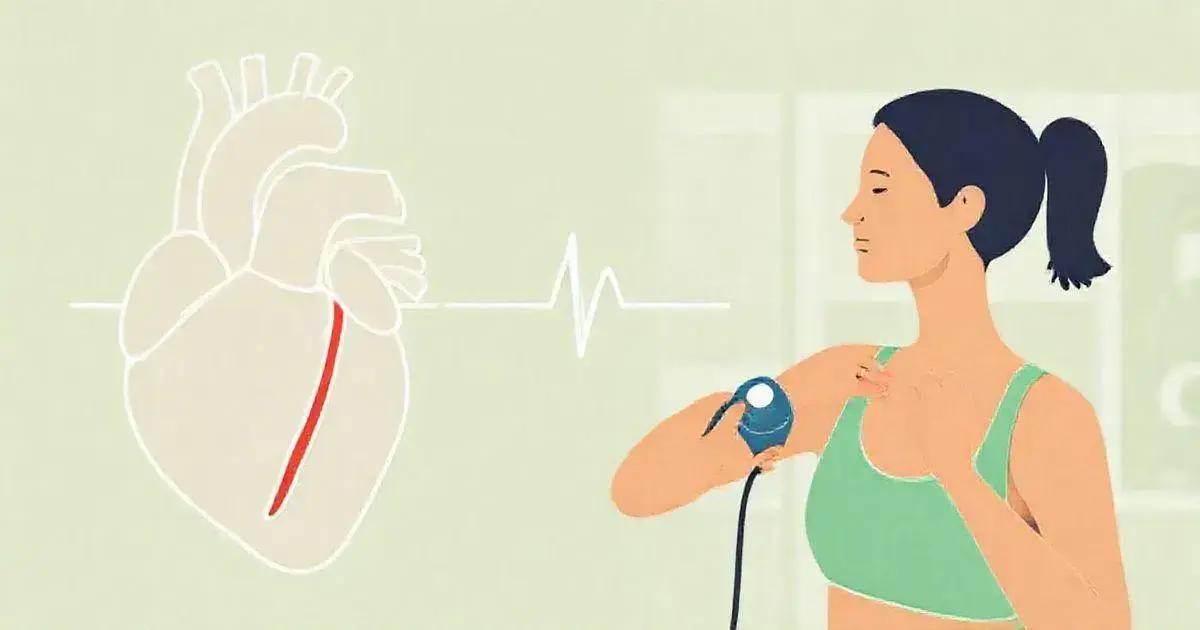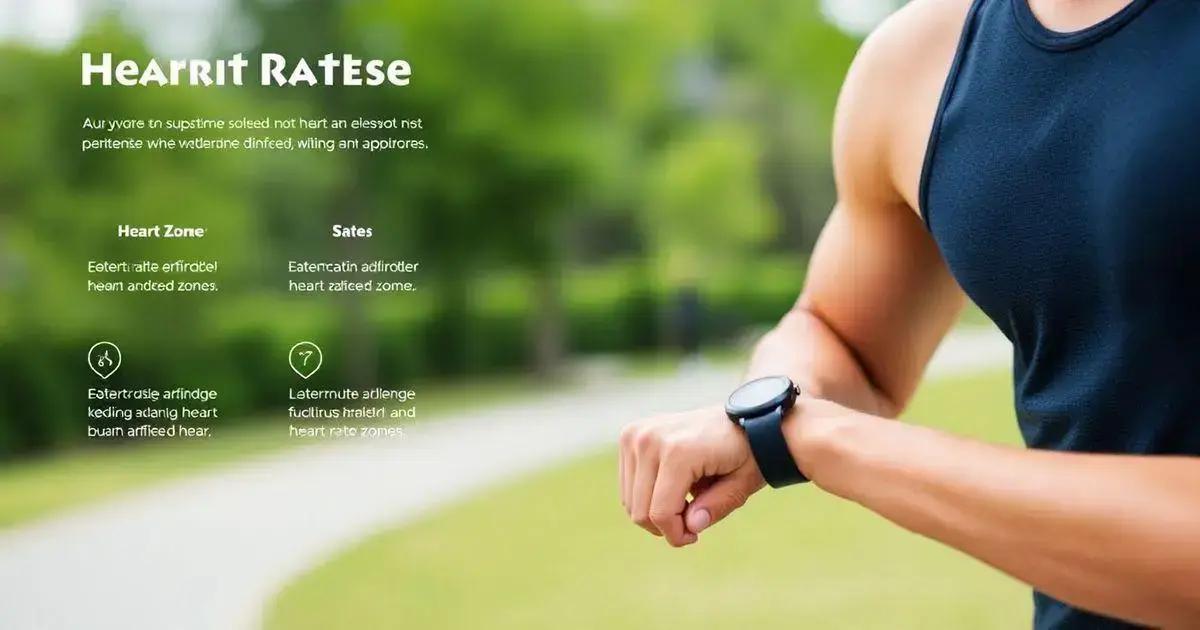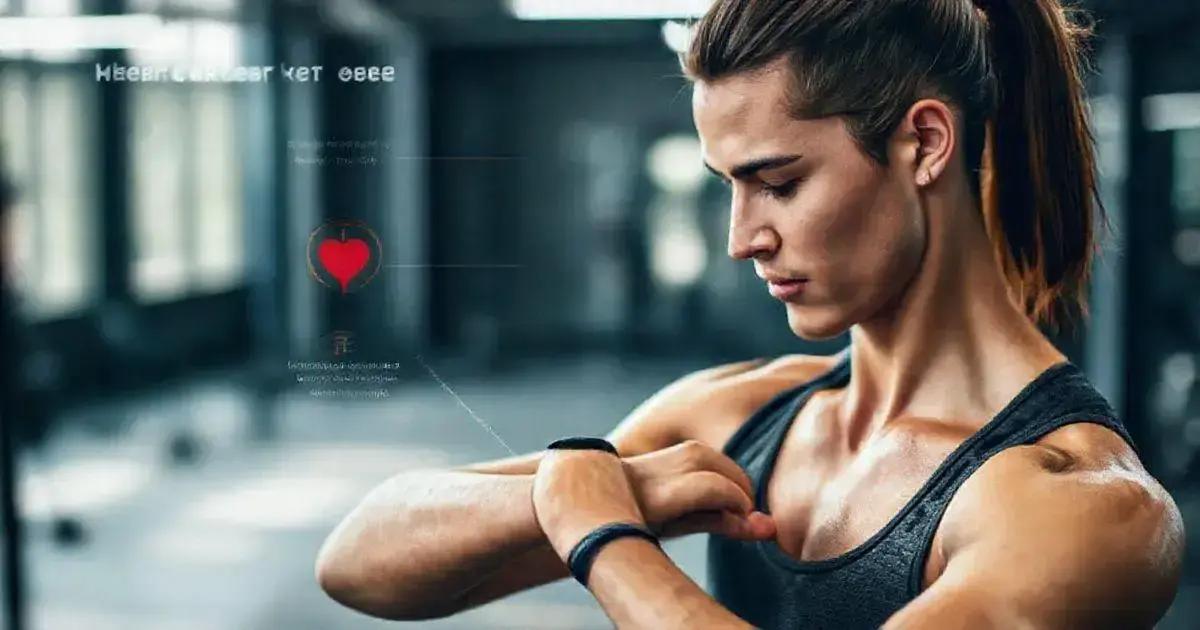Monitoring your heart rate is essential for better fitness tracking, helping you optimize workouts, avoid overexertion, and track your overall health. Using reliable devices like chest straps, smartwatches, and fitness trackers, alongside understanding heart rate zones, allows you to tailor your training effectively and monitor your progress accurately.
Monitoring your heart rate is essential for better fitness tracking and achieving your health goals. By understanding how your heart responds to various activities, you can optimize your workouts and ensure you’re training within safe limits. This article will guide you through the basics of heart rate, its importance in fitness, the best devices you can use for monitoring, and helpful tips to make the most out of your heart rate tracking.
Understanding Heart Rate Basics

Understanding your heart rate is a fundamental aspect of fitness tracking. Heart rate refers to the number of times your heart beats per minute (bpm). It’s a vital indicator of your body’s response to physical activity, stress, and overall health. A normal resting heart rate for adults is typically between 60 and 100 bpm.
How Heart Rate Works
When you exercise, your body needs more oxygen, and your heart pumps faster to meet this demand. The heart rate increases during activities like running, cycling, or swimming and decreases when you rest. Monitoring this rate helps you understand your fitness level and improve your training.
Types of Heart Rate
There are two primary types of heart rates that you should be aware of:
- Resting Heart Rate: This is your heart rate when you are at rest. It’s best measured in the morning before getting out of bed.
- Maximum Heart Rate: This is the highest your heart should beat during intense activities. You can estimate it by subtracting your age from 220.
The Importance of Recovery Heart Rate
Your recovery heart rate measures how quickly your heart returns to its resting rate after exercise. A faster recovery indicates better cardiovascular fitness and a more efficient heart. Aim for your heart rate to drop by 20 bpm or more within the first minute after stopping exercise.
Measuring Heart Rate
You can measure your heart rate manually by checking your pulse on your wrist or neck. Count the beats for 15 seconds and multiply by four, or use a heart rate monitor for accurate readings during workouts.
Importance of Monitoring Your Heart Rate

Monitoring your heart rate is crucial for several reasons. First, it helps you gauge your fitness level. By tracking how your heart responds during exercise, you can determine whether you are improving or need to adjust your workout routine.
Achieving Your Fitness Goals
When you understand your heart rate, you can tailor your workouts to meet specific goals. Whether you want to lose weight, build endurance, or enhance performance, knowing your heart rate zones is key. For example, training in the fat-burning zone (around 60-70% of your maximum heart rate) can help with weight loss, while the aerobic zone (70-80%) improves cardiovascular fitness.
Preventing Overexertion
Overexertion can lead to injuries and burnout. By monitoring your heart rate, you can avoid pushing yourself too hard. If your heart rate exceeds your target zone, it may be time to take a break or slow down. This awareness is especially important for those new to exercise or with pre-existing health conditions.
Tracking Recovery
Heart rate monitoring also allows you to assess how well your body recovers after workouts. A rapid drop in heart rate post-exercise indicates good cardiovascular health. Conversely, if your heart rate stays elevated for too long, it might signal that your body needs more time to recover.
Identifying Health Issues
Regular heart rate monitoring can help identify potential health issues. Sudden changes in your resting heart rate over time can suggest stress, fatigue, or medical conditions that may require further investigation. Staying aware of these changes can provide early warning signs to promote long-term health.
Best Devices for Heart Rate Tracking
![]()
When it comes to heart rate tracking, there are several devices available that cater to different needs and preferences. Here are some of the best options for effectively monitoring your heart rate:
1. Heart Rate Monitors
Chest strap monitors are known for their accuracy. They work by measuring electrical signals from the heart. This type is ideal for serious athletes who want precise data during workouts. Many models sync with fitness apps for real-time tracking.
2. Smartwatches
Smartwatches offer more than just heart rate tracking; they provide fitness tracking, notifications, and even health monitoring. Brands like Apple Watch and Fitbit are popular choices. Look for models that feature built-in optical sensors for heart rate measurement.
3. Fitness Trackers
Fitness trackers like the Garmin Vivosmart or Xiaomi Mi Band offer heart rate monitoring along with step counting, sleep tracking, and more. They are lightweight and easy to wear all day, making them great for casual fitness enthusiasts.
4. Smartphone Apps
Many smartphones now come with built-in sensors that can monitor your heart rate using the camera. Apps like Heart Rate Monitor or Cardiio allow you to measure your heart rate quickly. Simply place your finger over the camera lens for a quick reading.
5. Smart Clothing
Smart clothing like shirts or sports bras with embedded heart rate sensors is emerging as a popular choice. These garments provide real-time heart rate data without needing extra devices. They are great for those looking for convenience during workouts.
Tips for Effective Heart Rate Monitoring

Effective heart rate monitoring is essential for optimizing your fitness routine. Here are some valuable tips to help you track your heart rate accurately:
1. Choose the Right Device
Select a heart rate monitor that fits your lifestyle and needs. Chest straps are generally the most accurate, while smartwatches and fitness trackers offer convenience and additional features.
2. Understand Your Heart Rate Zones
Familiarize yourself with different heart rate zones and their purposes. Training within these zones helps you achieve specific goals, whether it’s fat burning, cardiovascular improvement, or peak performance.
3. Take Consistent Readings
Consistency is crucial for accurate monitoring. Measure your heart rate at the same time each day, preferably in the morning or after workouts, to track progress effectively.
4. Use Proper Placement for Monitoring Devices
If you’re using a chest strap, ensure it fits snugly and is positioned just below your chest muscles. For wrist devices, make sure they are worn a finger’s width above your wrist bone for accurate readings.
5. Stay Hydrated
Dehydration can affect your heart rate. Drink plenty of water before and during workouts to maintain optimal heart function and ensure accurate readings.
6. Adjust for External Factors
Be aware that factors such as temperature, altitude, and stress can influence your heart rate. Track these external conditions alongside your heart rate to understand their impact.
7. Monitor Recovery Heart Rate
After exercise, monitor how quickly your heart rate returns to rest. A faster recovery indicates better fitness levels and cardiovascular health.
In Conclusion: The Importance of Heart Rate Monitoring for Fitness
Monitoring your heart rate is essential for enhancing your fitness journey. By understanding your heart rate basics, the significance of tracking it, and utilizing the best devices, you can tailor your workouts more effectively.
Implementing tips for effective heart rate monitoring will help you achieve your fitness goals while ensuring safety and optimal performance. Remember that both accuracy and consistency are key in gathering data that truly reflects your health.
Whether you are a casual exerciser or a serious athlete, knowing how to monitor your heart rate can drive your progress and motivate you to stay committed to a healthier lifestyle.
FAQ – Frequently Asked Questions About Heart Rate Monitoring
Why is monitoring my heart rate important?
Monitoring your heart rate helps you understand your fitness level, tailor your workouts, and avoid overexertion. It also provides insight into your overall health.
What is the best device for tracking my heart rate?
The best device depends on your needs. Chest strap monitors are typically the most accurate. Smartwatches and fitness trackers offer convenience and additional features.
How can I measure my heart rate effectively?
You can measure your heart rate manually by checking your pulse or using a heart rate monitor. Ensure the device is snug and positioned correctly for accurate readings.
What are heart rate zones, and why should I care?
Heart rate zones indicate different levels of exertion and help you focus your training. By working within specific zones, you can achieve targeted fitness goals effectively.
How often should I check my heart rate?
For consistent monitoring, check your heart rate regularly—after workouts and at rest, preferably at the same time each day to track progress over time.
Can dehydration affect my heart rate readings?
Yes, dehydration can lead to an increased heart rate. Staying hydrated is essential for accurate heart rate monitoring and maintaining optimal performance.












